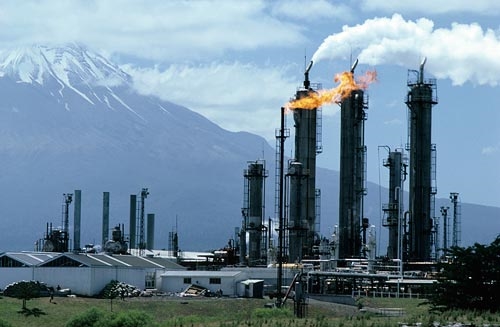Every hour, more than 400 quintillion Joules of energy from the Sun hit the Earth’s surface. That’s more than the planet uses in an entire year.
We capture a fraction of that through solar panels on homes, businesses, public buildings and dedicated solar farms - but no matter where the sunlight is gathered, it’s all affected by the weather.
So, how much of an impact does a cloudy day have on your solar panels? What about a rainy day? Snow? Fog? We take a look at the answers to these questions - and more.
What kind of weather will affect solar panels?
Clouds and fog
Anything that blocks the sunlight from getting to your solar panels will impact how much power they produce - but that doesn’t mean they stop producing entirely on cloudy days!
Solar panels will still generate electricity on cloudy days or in foggy weather, just to a lower extent. Cloudy days will usually result in the panels producing 10% to 30% of their typical capacity, with the exact amount depending on how thick the clouds or fog are.
This lowered capacity isn’t ideal, but it doesn’t affect the long-term gains offered by solar. Take Germany for example, a country that experiences a significant number of cloudy and foggy days, but is still a world leader in solar generation. The key is that, even with lots of cloudy days, the generation on sunny days makes up the difference.
On particularly overcast days, there is a chance that solar panels will generate little to no power. You can determine if this is going to be the case by taking a look outside and looking for distinct shadows. Shadows can’t exist without at least some sunlight, and a lack of shadows indicates that the cloud cover is too thick for adequate generation.
Rain
Rainclouds will affect solar generation the same way as regular clouds will - blocked sunlight means a temporary drop in electricity generation.
However, rain is actually a good thing overall for solar panels. It cleans any dust or grime that may have built up, keeping the solar cells clear of debris. The clouds may block the sunlight for an hour or two, but it means that you don’t have to get onto the roof and clean the panels yourself.
As a side note, there are currently solar panels in development that produce electricity directly from the kinetic impact of rain, generating power even when it’s cloudy. Currently, these aren’t as efficient as traditional solar panels though.
Snow
Snow can cause a problem for solar generation if it has the opportunity to build up and settle on the solar panels. Too much snow will block the sunlight from reaching the solar cells and thus reduce the power generation capacity.
Most of the time, this issue resolves itself. Warmer weather will melt the snow and, because of the tilt on most roof-mounted solar panels, the snow will simply slide off.
Sometimes, a snowstorm can even increase solar production. Large blankets of snow around the home (but not blocking the panels) can act as a mirror, bouncing photons back into your panels. This is rare and, of course, temporary, so don’t expect a snowstorm to bring in a bumper crop of kilowatts!
Hail & wind
Here in New Zealand, we can occasionally experience weather events that have the chance to damage solar panels. Driving hail and extremely high winds can shatter the protective glass or damage the mounting on the panels.
Thankfully, these events are rare and are considered in the design of a solar system. One thing to note is that, with some exceptions, weather damage isn’t covered in a typical solar warranty. This can often be added to a homeowner’s insurance policy instead, so it may pay to adjust your policy after your panels are installed.
What is the best temperature for a solar panel?
Consider the perfect day for solar panels. If you’re thinking of a warm, clear day, you’re only half right: the best temperature for solar panels is actually cool.
Solar panels are, at their heart, electronics, and like most other electronics, they operate more efficiently in cooler weather. In cold conditions, they produce a higher voltage and thus more electricity.
Wondering just how much more efficient they are in cold weather? Take a look at the specification sheet for your panels. Typically, for each degree above 77 degrees Fahrenheit, the panel will become one per cent less efficient, but the manufacturer should have more specific numbers for your panel under standard testing conditions.
This doesn’t necessarily mean that colder days always result in better electricity production. Winter will still usually result in lower production, due to the increased number of clouds, fewer sunshine hours, and other, similar factors. But if you can get a cool, clear day in summer that isn’t a complete scorcher, you’re in for a high-production day for your panels.
How long do solar panels last?
On average, solar panels have a useful life of about 25 to 30 years, with most manufacturers providing a performance warranty period of about the same and a full warranty of 10 to 15 years. It’s important to note that this doesn’t mean that solar panels will stop working entirely after 25 or 30 years of operation - they will just be less efficient.
This estimate is based on typical conditions and adequate installation. If there are major weather events or other environmental factors that the panels weren’t designed for, the useful lifetime may be less. Similarly, if the panels aren’t installed appropriately, they may not last as long as you’d hope.
This is why it’s important to ensure that you not only get good quality solar system components (including the panels), but also have a qualified team install them. Even the highest quality panel could experience failure well before its time due to a fault with installation - or it may simply not perform as well as it could.
Long story short, the typical weather in New Zealand is unlikely to permanently affect or damage your solar panels. You may experience some low production days due to cloud cover, and you may need to check for unexpected damage following a particularly intense hailstorm - but other than that, solar panels are tough, durable, and most of all designed specifically to withstand outdoor conditions.
For more information about the right solar panels for your local weather conditions, get in touch with the expert team at ZEN Energy today.




